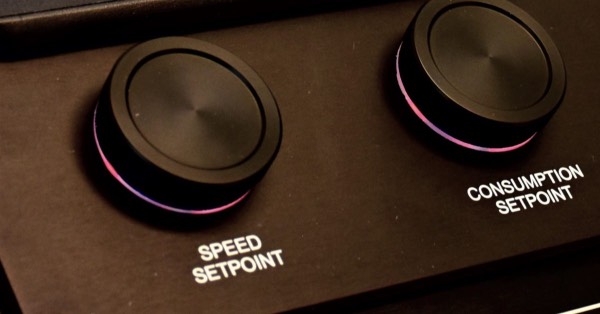Successful performance of Yara Marine’s FuelOpt propulsion optimization technology on one of their bulk carriers prompts Algoma Central Corporation to equip the balance of their Equinox class bulk carriers with FuelOpt systems for overall fleet efficiency.
Yara Marine Technologies has signed a contract with Algoma Central Corporation, a leading Canadian marine shipping company, to install its FuelOpt propulsion optimization technology onboard a further eight of their bulk carriers. This agreement comes on the heels of FuelOpt’s successful installation onboard the Algoma Conveyor in early April 2021.
David Belisle, Vessel Performance Manager at Algoma Central Corporation, said: “At Algoma, we were looking for a solution to improve overall operational efficiency. FuelOpt allows us to maximize the benefits of pitch/RPM regulation possible on our vessels equipped with controllable pitch propellers. Having seen the results achieved in such a short time with the Algoma Conveyor, we have decided to carry our collaboration forward by equipping 8 more bulk carriers with the FuelOpt system.”
Enabling EEXI compliance
Belisle also acknowledged that this installation offers the additional benefit of allowing Algoma to comply with the International Maritime Organization’s incoming Energy Efficiency Existing Ship Index (EEXI) framework – a significant concern for many ship operators at this time.
“Our FuelOpt system has had the proven functionality to limit shaft power since 2013 and provides a log of the propulsion data. Therefore, according to our understanding of IMO’s EEXI guidelines, the FuelOpt technology is already meeting ShaPoLi requirements,” said Mikael Laurin, Managing Director of Vessel Optimization at Yara Marine Technologies.
The technology can safely limit shaft power output (ShaPoLi) by allowing ship operators to set an upper limit to shaft power output without any modification to the existing machinery. This allows them to align daily operations with stipulations in the EEXI requirements. The use of ShaPoLi can also be overridden in an emergency, enabling the crew to access to the engine’s full power.
Yara Marine is working proactively to obtain class approval as soon as possible.
Combining versatility and efficiency
The FuelOpt system is versatile and can be installed on newbuildings or retrofitted. It functions regardless of the type of fuel or multiple fuel sources used and is compatible with any type of propeller or engine. As a result, it is forward compatible with upcoming vessel upgrades.
Allowing for direct control of speed, fuel consumption, engine power, or a combination thereof via an intuitive panel on the bridge, the system dynamically controls the vessel propulsion based on the commands set. The system, therefore, adapts propulsive power to changing environmental conditions and erases costly variations in speed and power, leading to increased efficiency via real-time fuel savings and emissions reduction.
Additionally, for vessels with a controllable pitch propeller, such as Algoma’s bulk carriers, FuelOpt allows additional efficiency gains through dynamic pitch/RPM optimization. It regulates propeller pitch and engine RPM separately to operate the engine and propeller at optimal conditions, optimizing energy use by achieving the maximum amount of propeller thrust with a minimum amount of power spent.
As proven by the installation onboard the Algoma Conveyor bulk carrier from the fleet of Algoma Central Corporation, operating in the Great Lakes – St. Lawrence Seaway, FuelOpt’s use is not restricted to deep-sea operations. This is evident from its use by operators mostly doing shorter line sea voyages such as UECC, Color Line, Bohai Ferry, Viking Lines, and more.









































